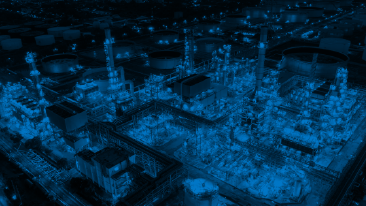The debate on how the International Maritime Organization’s (IMO) 2020 regulations will impact refiners has been raging for years. At AspenTech, we were discussing the broad impact on refinery economics back in 2018, and with individual refiners even longer. Today, the story has moved on. With the regulations just coming into effect, IMO 2020 is now an urgent concern for every refinery worldwide.
It is worrying, therefore, that a recent survey AspenTech commissioned reveals that while European refineries expect a larger impact from the IMO regulations than any other region, in many cases they are the least prepared for it.
European refineries have put a lower priority on improving availability than their competitors on the global stage. Just 23% say they are focusing on operational improvements targeting improved availability. They lack urgency and are slow to identify the benefits that an investment in digital technology can bring. IMO2020 will reduce many refineries’ profit options, and improving asset availability is the most powerful lever refiners can use to improve margins that is independent of their IMO advantage.
Worldwide, refineries are choosing to invest more in digital (rather than capital), but not at a fast-enough rate. Only 37% of refiners globally have put a focus on operational improvements targeting improved availability (even though our studies show margin improvement of at least $.50 per barrel is available). And just 43% of refineries around the world are concentrating on operational improvements to drive improved utilization — or, in other words, on digital investment to secure efficiency gains (where we believe another $1.50 per barrel is available). Both Boston Consulting Group (BCG) and McKinsey have published analysis showing energy in general — and refining in particular — to be behind the curve in industry progress in digital transformation.
The AspenTech survey additionally revealed that nearly two-thirds of oil refineries globally (64%) have not made any capital expenditure against IMO 2020 regulations.
One-third of refineries (33%) are upgrading equipment to clean higher-sulfur fuel, according to the survey, while just 29% of plants are shifting to the use of lower-sulfur crude slates to help cope with the regulation. Digital tools are available to significantly improve performance of existing sulfur recovery units. For instance, BPCL Mumbai has improved sulfur removal and recovery by 90%, solely with a software investment.
Simply stated, refineries need to do much more. While it is too late for capital investment to have a real impact now, refineries need to focus on the use of new digital technologies to deliver operational improvements. In the availability area, a prime opportunity is moving to prescriptive maintenance based on AI. In the utilization area, supercharged planning technologies can make the difference. IMO 2020 should be forcing operators to find improvements to make their operations more efficient, but they are not moving fast enough today.
These are challenging times, but there are still many margin-improvement opportunities available to put refiners in the strongest possible position to survive and thrive in the post-IMO 2020 world. Given the overall reduction in production that IMO 2020 is likely to bring, fuels that enable shippers to comply will be comparatively more valuable in the market.
Investment to drive improved utilization and availability is becoming ever more urgent. Digital approaches can really help in this area, and when well designed and conceived, they can be put in place quickly to start driving results.
For more information about how shifting external pressures and the promise of digitalization are impacting the energy industry, please listen to the on-demand webinar I recorded with Lee Nichols of Hydrocarbon Processing magazine and Carole Nakhle of Crystol Energy.
You can also read my vision for the refinery of 2030 and how it will drive energy enterprise of the future.






Leave A Comment